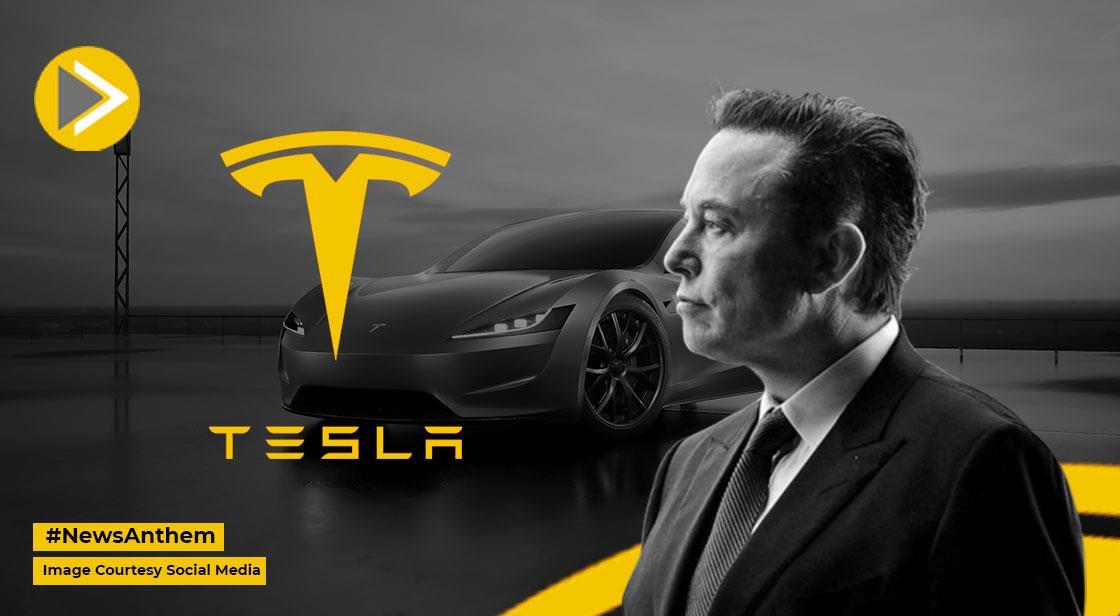Tesla Records Just 600 Orders in India Months After July Launch

News Synopsis
Tesla’s much-anticipated entry into India has not lived up to the hype, with the American EV giant securing just over 600 orders since its July 2025 launch. While Elon Musk’s brand has long been associated with premium electric mobility worldwide, its high price point, import tariffs, and limited delivery footprint have slowed momentum in India’s fast-evolving EV sector.
Limited Deliveries Across Select Cities
Tesla will begin deliveries in Mumbai, Delhi, Pune, and Gurugram, with the first batch of cars expected to arrive from Shanghai in early September. The size of the shipment depends on two key factors:
-
Confirmed full payments received from customers
-
Tesla’s capacity to expand delivery beyond its four-city footprint
For now, these restrictions suggest that Tesla is treading cautiously in India, prioritizing controlled rollouts over aggressive expansion.
Disappointing Order Volume
According to industry insiders, Tesla had aimed much higher for its Indian debut but has managed just 600 confirmed bookings so far. To put this in perspective, Tesla delivers roughly the same number of cars every four hours globally.
This underwhelming response has sparked fresh concerns about Tesla’s broader global growth strategy, particularly as it faces challenges in its two biggest markets—the US and China.
Revised Shipment Plans for 2025
Instead of fulfilling its full 2,500-car annual quota, Tesla now plans to ship only 350 to 500 cars to India in 2025. The decision highlights the brand’s struggle to penetrate a market where affordability plays a pivotal role in consumer decisions.
While Tesla enjoys significant foot traffic at its premium showrooms, this interest hasn’t translated into actual purchases, largely due to price sensitivity among Indian buyers.
Import Tariffs and High Pricing Hurt Demand
Tesla’s entry-level model, the Model Y, comes with a price tag exceeding ₹6 million ($68,000) in India. By contrast, most electric vehicles sold in the country fall around ₹2.2 million, according to data from JATO Dynamics.
With import tariffs as high as 110%, Tesla’s models remain out of reach for a majority of Indian buyers, restricting the company’s appeal to a narrow luxury segment.
Political and Trade Hurdles
Tesla’s India ambitions were also complicated by global political shifts. The company was hoping that tariffs would be reduced through US-India trade negotiations. However, with former US President Donald Trump imposing 50% tariffs on Indian exports, relations have strained, diminishing hopes for reduced import duties.
Similarly, the India-Europe free trade agreement, which could have enabled Tesla to import cars from its German Gigafactory at lower costs, remains stalled.
India’s EV Market: Niche Luxury Segment Shows Potential
While Tesla’s booking numbers look modest, they are relatively significant within India’s high-end EV segment. In the first half of 2025, only 2,800 premium electric cars priced between ₹4.5 million and ₹7 million were sold across the country.
This suggests that Tesla still commands a sizeable share of India’s luxury EV space. However, its challenge lies in scaling beyond a niche customer base in a country where EV adoption is growing but remains highly price-sensitive.
Marketing Strategy: Global vs. Local
Unlike Indian automakers who rely heavily on advertising to woo buyers, Tesla has consistently shunned traditional marketing campaigns, banking instead on its global reputation and Elon Musk’s brand appeal.
While this approach has worked in developed markets, it has put Tesla at a disadvantage in India, where consumer awareness and competitive pricing drive buying decisions.
Conclusion
Tesla’s entry into India has highlighted both the potential and limitations of the country’s EV market. With only 600 orders since July, the company has had a lukewarm debut, constrained by high tariffs, premium pricing, and limited delivery coverage.
Yet, India’s growing appetite for electric vehicles and the emergence of a luxury EV niche still offer Tesla opportunities. To unlock long-term success, the company may need to adapt its pricing, expand beyond major metros, and rethink its India strategy to suit a market where affordability and accessibility are critical.









